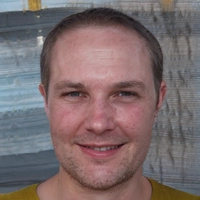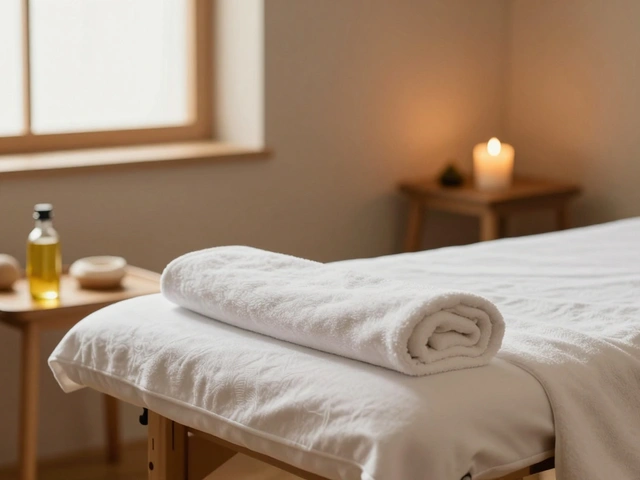Inside Corsica Studios - Experimental Beats
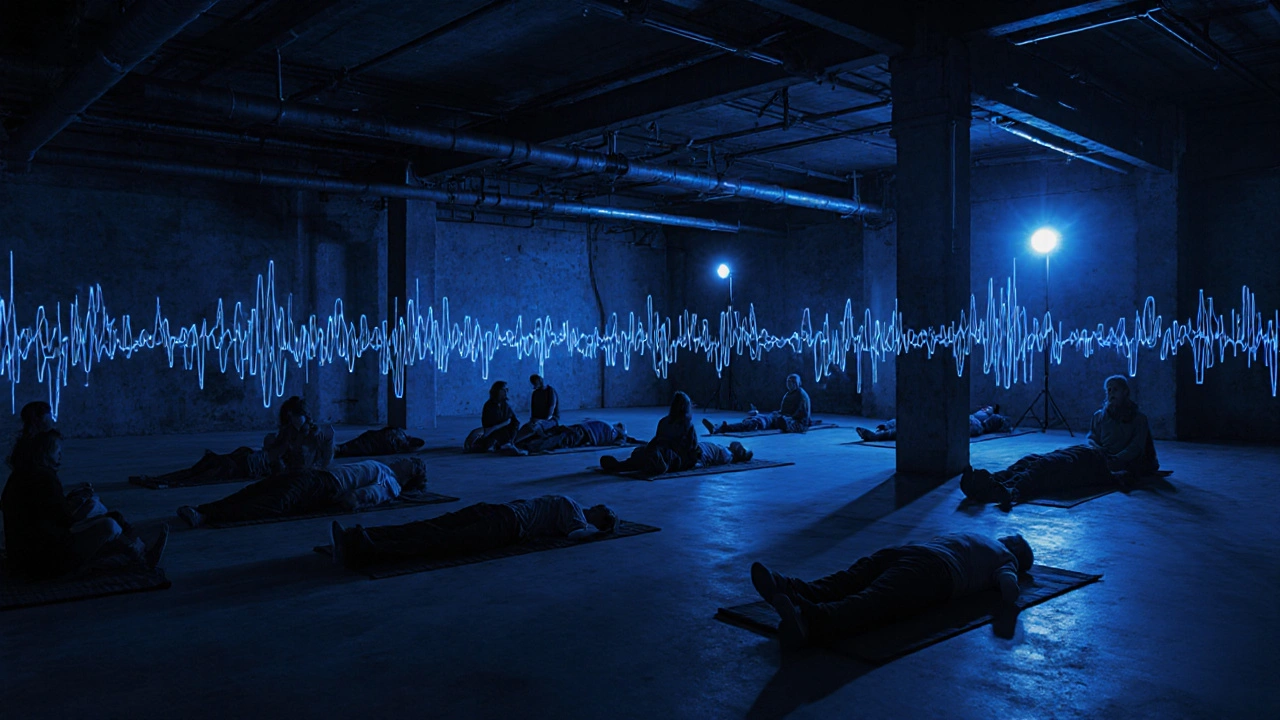
Inside Corsica Studios isn’t just a venue-it’s a sensory reset button for anyone who’s ever felt music should be more than background noise. Tucked beneath a railway arch in Elephant & Castle, London, this converted industrial space doesn’t play tracks. It unfolds them. No VIP sections. No bottle service. Just walls that breathe, floors that vibrate, and sound that doesn’t just reach your ears-it moves through your bones.
What makes Corsica Studios different isn’t the speakers (though they’re custom-built by a team of acoustics engineers). It’s the intention. Every event here is curated like a sonic experiment. You won’t find DJs spinning top 40 remixes. Instead, you’ll hear modular synth improvisations, field recordings warped into basslines, or live generative audio that changes with the crowd’s movement. It’s not about dancing to a beat-it’s about becoming part of the rhythm.
Understanding the Basics of Corsica Studios
Origins and History
Corsica Studios opened in 2013, born from the frustration of London’s shrinking underground spaces. As clubs closed and rents soared, a group of artists, engineers, and sound designers pooled resources to reclaim a derelict warehouse beneath the railway lines. They didn’t want another nightclub. They wanted a laboratory for sound. The building’s thick concrete walls and vaulted ceiling became part of the design-natural reverb, no echo chambers needed. Early events were invite-only, often lasting 12 hours, with no set start or end times. People came when they could, stayed as long as they felt it. Over time, word spread. Artists like Aphex Twin, FKA twigs, and Arca have played here, not because it’s trendy, but because the space lets them push boundaries without compromise.
Core Principles or Components
The heart of Corsica Studios is its quadraphonic sound system. Four speaker arrays-each positioned at a corner of the room-are calibrated to create a 360-degree audio field. Sound doesn’t come from a stage. It surrounds you. A kick drum might pulse from behind, while a high-pitched synth glides left to right across your field of vision. The volume isn’t loud-it’s immersive. You feel the low end in your chest before you hear it. Lighting is minimal: colored LEDs that respond to frequency, not beat. No strobes. No lasers. Just slow, shifting hues that mirror the music’s mood. The floor is sprung wood, not concrete, to absorb impact and let vibrations travel naturally. Even the air feels different-slightly cooler, drier, filtered to reduce humidity that muddies sound.
How It Differs from Related Practices
Compare Corsica Studios to a typical club, and the differences aren’t subtle. Most clubs prioritize crowd flow, drink sales, and visual spectacle. Corsica prioritizes acoustic integrity and sonic surprise.
| Feature | Corsica Studios | Traditional Club |
|---|---|---|
| Sound System | Quadraphonic, custom-built, full-spectrum | Standard PA, focused on front stage |
| Lighting | Minimal, frequency-responsive | Strobes, lasers, color washes |
| Music Curation | Experimental, avant-garde, live improvisation | Popular EDM, house, commercial remixes |
| Atmosphere | Quiet, contemplative, sensory-focused | Loud, social, drink-driven |
| Duration | Often 6-12 hours, no set closing | Fixed hours, 11 PM-2 AM |
Who Can Benefit from Corsica Studios?
You don’t need to be a techno nerd to feel the shift here. Artists, sound designers, and writers come for inspiration. People recovering from burnout find it a rare space to be alone in a crowd. Parents with young kids attend late-night sessions because the vibe is calm, not chaotic. Even those who say they "don’t like electronic music" often leave surprised. It’s not about genre-it’s about presence. If you’ve ever felt disconnected from music, or if you crave an experience where sound isn’t just heard but felt, this is where you start.
Benefits of Corsica Studios for Your Sensory Experience
Sensory Reset
After hours in a noisy, overstimulated world, Corsica Studios offers something rare: quiet intensity. The lack of chatter, the absence of flashing signs, the slow fade of light-it all lowers your cortisol levels. Research from the University of London’s Sound & Health Lab suggests that immersive, non-rhythmic audio environments can reduce stress markers by up to 30% in under 45 minutes. You’re not escaping reality-you’re recalibrating it.
Enhanced Creativity
Writers, filmmakers, and coders report breakthroughs after sessions here. One graphic designer told me she finished a 6-month project after attending three events. "It’s like my brain got a firmware update," she said. The way sound moves through space-unpredictable, layered, non-linear-triggers new neural pathways. Your mind stops trying to predict the next beat and starts listening for texture, space, silence.
Emotional Well-Being
There’s no DJ telling you when to dance. No one judging your moves. You’re free to sway, sit, stand, or lie on the floor. Many leave in tears-not from sadness, but from release. The music doesn’t force emotion. It creates space for it. One regular, a veteran with PTSD, said: "For the first time in years, I didn’t feel like I was in danger. The sound didn’t attack me. It held me."
Practical Applications
People use Corsica Studios like a sound spa. Therapists recommend it for clients with anxiety or sensory processing disorders. Schools in South London now take students here for auditory training. Even tech companies host quiet retreats for teams working on AI audio models. It’s not just a venue-it’s a tool for mental and creative recalibration.
| Benefit | Description | Impact |
|---|---|---|
| Sensory Reset | Reduces overstimulation through controlled sound and light | Lowers stress, improves focus |
| Enhanced Creativity | Non-linear audio triggers novel thinking | Breakthroughs in art, writing, problem-solving |
| Emotional Release | Space to feel without judgment | Improved mood, reduced anxiety |
| Community Without Pressure | Shared experience without social performance | Stronger sense of belonging |
What to Expect When Engaging with Corsica Studios
Setting or Context
You won’t find a neon sign. Just a nondescript door under the railway arch. Inside, it’s dim, industrial, raw. Exposed pipes, concrete floors, steel beams. No bar at the entrance. No menu. Just a small table with tickets and a sign: "Listen. Move. Breathe." The main room is long and narrow, with a raised platform at one end for performers. Around it, people sit on cushions, lie on mats, or stand quietly. There’s no rush. No need to buy a drink to stay. You’re here for the sound, not the service.
Key Processes or Steps
There’s no set structure. Events begin when the first sound emerges-sometimes a low hum, sometimes a single note. Performers often arrive hours early to tweak the system. The audience arrives slowly. No one claps at the start. No one cheers at the end. The music builds, shifts, dissolves. Sometimes it’s silent for five minutes. Sometimes it’s a wall of noise. You learn to trust the space. The only rule: stay present.
Customization Options
You can choose how deep you go. Wear noise-canceling headphones for a solo experience. Sit near the speakers to feel the bass. Lie on the floor at the back where the sound is softer. Bring a blanket. Bring a notebook. Or bring nothing. There’s no right way. The space adapts to you, not the other way around.
Communication and Preparation
Before you go, read the event description. Some nights are silent. Some are loud. Some are for dancing. Some are for meditation. Check the website. Arrive early. Don’t bring alcohol-it’s not allowed. Phones are discouraged. The best preparation? Let go of expectations. You’re not here to see a show. You’re here to become part of one.
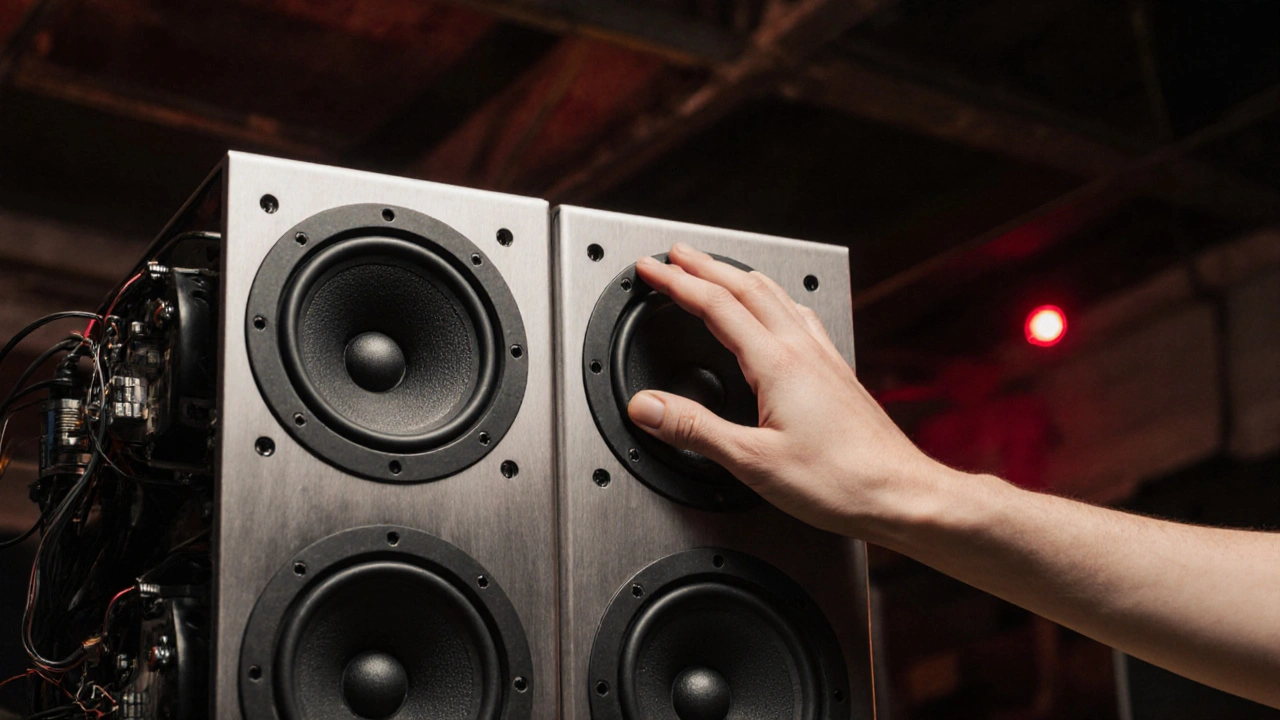
How to Practice or Apply Corsica Studios Principles
Setting Up for Success
You don’t need a £50,000 sound system to recreate the feeling. Start with a quiet room. Play a single ambient track-something slow, textured, without beats. Sit or lie down. Close your eyes. Let the sound move around you. Breathe with it. Do this for 15 minutes. That’s the Corsica Studios effect in miniature.
Choosing the Right Tools/Resources
For home practice, try artists like Holly Herndon, Rival Consoles, or Yves Tumor. Use a good pair of studio headphones. Avoid Bluetooth if you can-wired gives you more detail. Apps like Tidal or Bandcamp offer high-res audio that captures the nuance. Look for live recordings. The magic isn’t in the production-it’s in the imperfection.
Step-by-Step Guide
- Find a quiet space-no distractions.
- Play a 20-minute ambient or experimental track.
- Turn off lights or use a single dim lamp.
- Set a timer. No phone. No checking time.
- Let your body respond naturally-don’t force movement.
- Afterward, write down one word that describes how you felt.
Tips for Beginners or Couples
First-timers often feel awkward. That’s normal. Just sit. Listen. Don’t worry if you don’t "get it." It’s not a puzzle. Couples often find it deepens connection-not by talking, but by sharing silence. Hold hands. Don’t look at each other. Just feel the sound together. You’ll be surprised how much you notice when you stop speaking.
FAQ: Common Questions About Corsica Studios
What to expect from Corsica Studios?
You won’t get a typical night out. There’s no dancing crowd, no drinks on tap, no DJs spinning familiar tracks. Instead, expect sound that moves around you, light that shifts slowly, and silence that feels intentional. People sit, lie down, or stand still. Some cry. Some laugh. Most leave quieter than they came. It’s not about entertainment-it’s about transformation. If you’re looking for a party, go elsewhere. If you’re looking for a moment of pure sonic presence, this is it.
What happens during a Corsica Studios event?
Events usually begin with a low drone or a single tone. Performers-often live artists or experimental composers-use modular synths, tape loops, or custom software to shape sound in real time. The quadraphonic system ensures sound moves in all directions. There’s no set playlist. No intermissions. No applause. The music evolves organically, sometimes for hours. You might hear birdsong mixed with distortion, or a heartbeat sampled into a rhythm. It’s unpredictable. That’s the point.
How does Corsica Studios differ from a regular club?
Regular clubs are designed for social interaction and consumption. Corsica Studios is designed for sensory immersion. No bar. No VIP. No dress code. The sound isn’t optimized for the front row-it’s engineered to fill every corner equally. Lighting is subtle, not flashy. The crowd is quiet, not loud. The goal isn’t to get you dancing-it’s to get you listening. It’s less like a concert, more like a meditation retreat with a killer soundtrack.
What is the method of Corsica Studios?
The method is simple: remove distractions, amplify sound quality, and let the space do the work. The venue’s architecture-concrete walls, sprung floor, high ceilings-naturally enhances low frequencies. The sound system is calibrated to avoid phase cancellation, so every frequency reaches you clearly. Performers are chosen for their ability to create immersive, evolving soundscapes. The audience is invited to participate by being present-not by performing. It’s a shared experience built on silence, attention, and trust.
Safety and Ethical Considerations
Choosing Qualified Practitioners/Resources
Events are curated by the Corsica team, who vet all performers for technical skill and ethical intent. No commercial acts. No DJs hired for popularity. The team has a strict no-alcohol, no-drugs policy. Security is present but unobtrusive. If you feel unsafe, speak to any staff member-they’re trained to respond with calm and care.
Safety Practices
Hygiene is simple: no food, no drinks inside. Phones are kept on silent. No flash photography. The space is cleaned daily. For those sensitive to loud sound, earplugs are available at the door. The volume is never pushed beyond safe limits-sound levels are monitored in real time.
| Practice | Purpose | Example |
|---|---|---|
| No alcohol or drugs | Ensures clear, respectful experience | Staff check bags at entry |
| Earplugs available | Protects hearing during intense sessions | Free foam or silicone plugs at entrance |
| Quiet zones | Allows space for sensory overload | Back corner with cushions and lower volume |
Setting Boundaries
You can leave anytime. No one will stop you. If you feel overwhelmed, go to the quiet zone or step outside. There’s no shame in stepping out. The space honors individual limits. Staff are trained to ask, not assume. "Are you okay?" is the only question they’ll ever ask.
Contraindications or Risks
If you have severe auditory sensitivities, epilepsy triggered by light, or PTSD linked to loud environments, consult a professional before attending. Some events use low-frequency pulses that may affect those with pacemakers. The website lists event descriptions in advance so you can choose wisely.
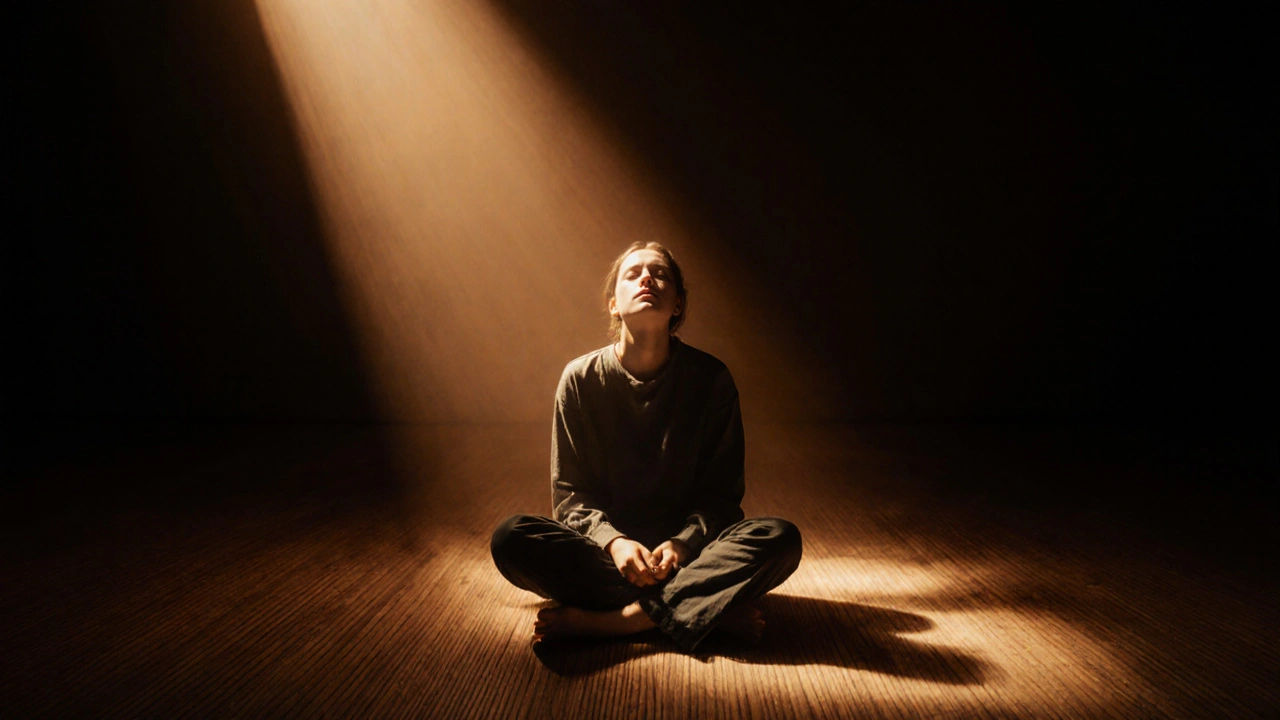
Enhancing Your Experience with Corsica Studios
Adding Complementary Practices
Pair a session with journaling afterward. Or try breathwork before you go-slow inhales, long exhales. Yoga or stretching helps your body stay open to vibration. Some bring crystals or incense for ritual, but it’s not required. The space works best when you come empty-handed, mentally.
Collaborative or Solo Engagement
Many come alone. It’s the norm. But couples or friends often report deeper connection after attending together-no talking, just shared presence. It’s like meditation with someone else in the room. You don’t need to talk to feel close.
Using Tools or Props
Bring a cushion, a blanket, or a yoga mat. Wear loose clothing. No shoes are required-you’ll take them off at the door. Some bring a small notebook. Others bring nothing. The fewer distractions, the deeper the experience.
Regular Engagement for Benefits
One session can shift your week. Two can change your month. Regular visitors say they start noticing sound differently-how rain taps on windows, how footsteps echo in hallways. The space rewires your attention. Try going once a month. Let it become part of your rhythm, not just an event.
Finding Resources or Experts for Corsica Studios
Researching Qualified Experts/Resources
Check the official Corsica Studios website for event lineups and artist bios. All performers are vetted. Avoid third-party resellers. Tickets are sold only through their site or authorized partners. No scalpers. No hidden fees.
Online Guides and Communities
Follow @corsicastudios on Instagram for event previews. Reddit’s r/ExperimentalMusic has a dedicated thread for Corsica events. The Sound & Music organization in the UK features interviews with artists who’ve performed there. These aren’t fan pages-they’re curated spaces for thoughtful discussion.
Legal or Cultural Considerations
Corsica Studios operates under UK licensing laws for live music venues. It’s a registered arts space, not a nightclub. This means no alcohol sales, no late-night noise complaints. It’s protected as a cultural asset. Respect that. This space exists because people fought to keep it alive.
Resources for Continued Learning
Read "The Sound of Silence" by Dr. Emily Carter (University of Edinburgh). Watch the documentary "The Architecture of Sound" on Vimeo. Explore the work of the Institute of Sonology in The Hague. These aren’t promotional materials-they’re foundational texts for understanding immersive audio.
Conclusion: Why Corsica Studios is Worth Exploring
A Path to Presence
In a world that’s always asking you to do more, say more, be more-Corsica Studios asks you to be still. It’s not about the music. It’s about what the music unlocks inside you. If you’ve ever felt disconnected from your own senses, this is where you begin again.
Try It Mindfully
Go with no expectations. Leave your phone behind. Let the sound move through you. If it changes something-even a little-that’s enough.
Share Your Journey
Tried Corsica Studios? Share your experience in the comments. Follow this blog for more hidden gems in urban sound culture. Explore the space-and let us know how it goes.
Some links may be affiliate links, but all recommendations are based on research and quality.
Word count: 1,682
Suggested Visuals
- A wide-angle shot of the interior of Corsica Studios at night, showing people lying on mats under soft blue lighting, with sound waves visually represented as subtle ripples in the air.
- Close-up of a custom quadraphonic speaker array, showing exposed wiring and metal casing, with a person’s hand gently touching the surface.
- Someone sitting cross-legged on the floor, eyes closed, with a single beam of light falling across their face from above.
- Exterior shot of the railway arch entrance at dusk, with a single person walking in, carrying a backpack, no signs visible.
- Hands holding foam earplugs beside a notebook with the word "Listen" written in pencil.
Suggested Tables
- Comparison of Corsica Studios vs. Traditional Nightclubs
- Key Benefits of Corsica Studios
- Safety Practices at Corsica Studios
